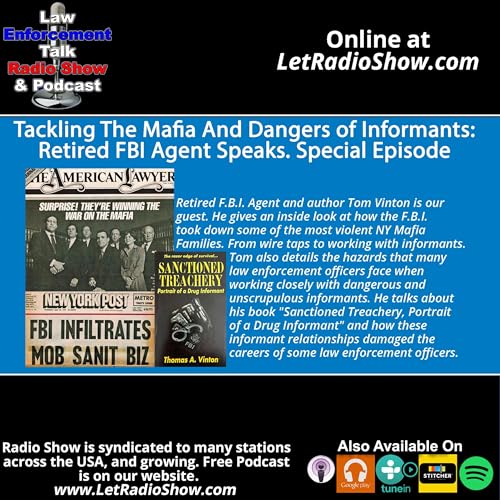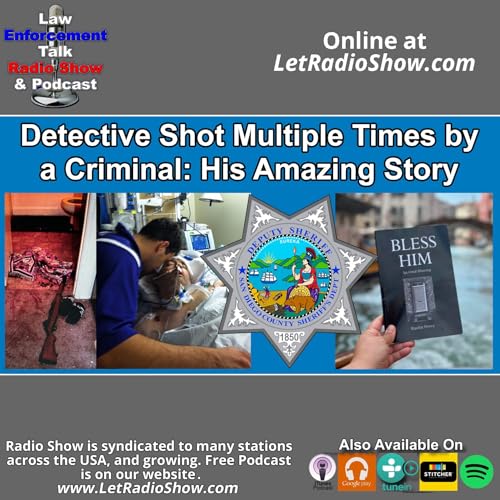Her College Son’s Death: A Much Needed and Tough Conversation. Special Episode. In one of the most emotionally powerful and necessary conversations to date, the Law Enforcement Talk Radio Show and Podcast presents a special episode titled “Her College Son’s Death, A Much Needed and Tough Conversation.” This deeply personal discussion explores life after unimaginable loss the death of a college-aged son, and how one mother transformed her grief into a mission to help others. The Law Enforcement Talk Radio Show and Podcast, is available for free on their website, also on Apple Podcasts, Spotify, Youtube and many other podcast platforms. The guest for this special episode is Melissa Bottorf-Arey, a mother, author, certified grief companion, and the creator and host of The Leftover Pieces: Suicide Loss Conversations Podcast. Her story begins on a day that forever divided her life into “before” and “after.”. The Law Enforcement Talk Radio Show and Podcast promoted across their Facebook , Instagram , LinkedIn , Medium and other social media platforms. “On Sunday, August 7, 2016, my life was obliterated, shattered beyond recognition,” Melissa shared. “From that day forward, my life would be measured in ‘before’ and ‘after.’ My oldest son, Alex, had been home from college for five weeks… and then he was gone.” Look for supporting articles about this and much more from Law Enforcement Talk Radio Show and Podcast in platforms like Medium , Blogspot and Linkedin . Alex, a 21-year-old college junior, was described by his mother as compassionate, bright, and loved by many. Yet, like so many college students, he faced growing stress, academic pressures, and hidden mental health struggles. Her College Son’s Death: A Much Needed and Tough Conversation. Special Episode. “He had a lot on his plate,” Melissa recalled. “He was involved in his fraternity, juggling academics, relationships, and leadership roles. He saw someone at the school counseling center a time or two, but they were overloaded. He didn’t want to burden anyone, he preferred being the one helping others.” Available for free on their website and streaming on Apple Podcasts, Spotify, and other podcast platforms. On July 29, 2016, Melissa helped her son pack his car to return to school. That would be the last day they spoke. “We laughed and joked as he hugged me and said, ‘Don’t cry, Mom, I’ll be home in two weeks for a birthday.’ Eight days later, my youngest son stood in front of me, trying to say the words, ‘Alex is dead, Mom.’” Alex had died by suicide. The pain, Melissa said, was indescribable, “My heart lay in shattered pieces all around me.” The Law Enforcement Talk Radio Show and Podcast episode is available for free on their website , Apple Podcasts , Spotify and most major podcast platforms. In the aftermath, Melissa faced a darkness that few can imagine. But over time, she chose to rebuild, one piece at a time. Her College Son’s Death: A Much Needed and Tough Conversation. Special Episode. “Deciding to start the work of picking up my leftover pieces was beyond hard,” she said. “It was lonely and required many intentional choices. Yet, with support and tools, I learned to live successfully alongside my grief, most of the time, anyway.” Her healing journey inspired her to help others walking the same road. She became a Master Certified Grief Companion, trauma-informed group leader, and author of multiple books. Most notably, she founded The Leftover Pieces: Suicide Loss Conversations Podcast, a safe space for survivors of suicide loss to connect, share, and heal. “I knew I had to do something,” Melissa said. “I wanted to create a community of comfort, connection, and healing, especially for those who’ve lost someone to suicide. That’s how The Leftover Pieces began.” The full podcast episode is streaming now on Apple Podcasts, Spotify, and across Facebook, Instagram, and LinkedIn. Her podcast has since grown into an online community offering grief resources, peer support, and a Legacy Project honoring the lives of children lost to suicide. “In all of these spaces, I support grieving moms so they may find meaning and even happiness again,” Melissa shared. “I’m still a grieving mom too, there’s no sugar-coating that. But I offer love, compassion, and a safe space for your shattered heart.” Suicide Among College Students, Her College Son’s Death: A Much Needed and Tough Conversation. Special Episode. This conversation extends beyond one family’s tragedy. It sheds light on a critical and growing public health issue, suicide among college students. According to data from Governor’s State University, suicide remains one of the most common causes of death among college students in the U.S. Each year, an estimated 24,000 students attempt suicide, and approximately 1,100 die from those attempts. You can find the show on Facebook, Instagram, ...
Mehr anzeigen
Weniger anzeigen
 Nov 16 202538 Min.
Nov 16 202538 Min. 38 Min.
38 Min. Nov 9 202540 Min.
Nov 9 202540 Min. 38 Min.
38 Min. 40 Min.
40 Min. 39 Min.
39 Min. Oct 26 202540 Min.
Oct 26 202540 Min. 39 Min.
39 Min.

